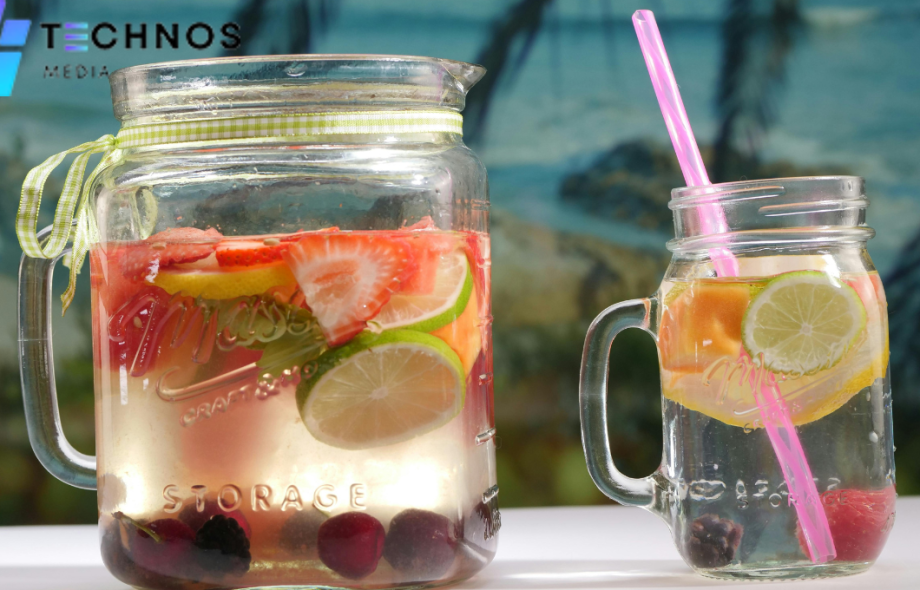Introduction
Is vitamin water good for you? This question has become increasingly relevant as more people look for alternatives to plain water and sugary soft drinks. Vitamin water claims to offer hydration along with essential nutrients, but is it truly beneficial? In this article, we will explore the ingredients, potential benefits, risks, and whether vitamin water is a healthy choice for daily consumption.
What Is Vitamin Water?
Vitamin water is a flavored beverage that contains added vitamins, minerals, and sometimes electrolytes. Marketed as a health-boosting drink, it is often positioned as a better alternative to soda and energy drinks. However, not all vitamin waters are created equal, and their nutritional value varies depending on the brand and ingredients.
Nutritional Content of Vitamin Water
Most vitamin water brands contain:
Water – The primary ingredient, essential for hydration.
Vitamins & Minerals – Commonly includes vitamins C, B-complex, and sometimes vitamin D or calcium.
Electrolytes – Such as potassium and sodium, which aid in hydration.
Sugar or Artificial Sweeteners – Some varieties contain added sugar, while others use artificial sweeteners to enhance taste.
Hidden Sugars in Vitamin Water
One of the primary concerns with vitamin water is its sugar content. Some varieties contain as much as 30 grams of sugar per bottle, which is similar to a can of soda. Consuming high amounts of sugar can lead to weight gain, insulin resistance, and an increased risk of diabetes.
Health Benefits of Vitamin Water
When consumed in moderation, vitamin water may offer certain health benefits:
1. Hydration Support
Staying hydrated is crucial for overall health, and vitamin water can help those who struggle to drink plain water. Electrolytes present in some varieties aid in replenishing fluids lost through sweat, making it a popular choice for athletes.
2. Source of Essential Vitamins
Many people fall short on essential vitamins, particularly B vitamins and vitamin C. Vitamin water can provide an easy way to supplement these nutrients, though whole foods remain the best source.
3. Low-Calorie Options
Some vitamin water brands offer sugar-free options, using artificial sweeteners instead. These can be a better choice for those monitoring their calorie intake.
Risks and Downsides of Vitamin Water
While vitamin water offers some benefits, there are also potential risks:
1. High Sugar Content
Excess sugar intake is linked to obesity, heart disease, and metabolic disorders. Many vitamin water brands contain as much sugar as soft drinks, negating their health benefits.
2. Artificial Ingredients
Some sugar-free versions contain artificial sweeteners like sucralose or aspartame. While generally recognized as safe, these additives can cause digestive discomfort in some individuals.
3. Overconsumption of Certain Vitamins
Water-soluble vitamins like B-complex and vitamin C are generally safe in high amounts, but excessive intake of fat-soluble vitamins (A, D, E, and K) could lead to toxicity.
4. Not a Substitute for a Balanced Diet
Relying on vitamin water for nutrients can lead to an imbalanced diet. Whole foods provide fiber, antioxidants, and phytonutrients that cannot be replicated by fortified drinks.
Is Vitamin Water a Good Alternative to Soda?
Many people switch to vitamin water to reduce their soda intake. While it may be a better alternative, it is not necessarily the healthiest option. Opting for unsweetened flavored water, herbal teas, or naturally infused water (with fruits and herbs) can be a more nutritious choice.
How to Choose a Healthy Vitamin Water
If you decide to drink vitamin water, here are some tips for making a healthier choice:
Check the Ingredients – Look for brands with minimal added sugar and no artificial sweeteners.
Choose Electrolyte-Rich Options – These can be beneficial after exercise or during hot weather.
Watch the Serving Size – Some bottles contain multiple servings, increasing sugar and calorie intake.
Consider Making Your Own – Infusing water with fresh fruit, herbs, and a pinch of sea salt can provide a healthier alternative.
Conclusion
So, is vitamin water good for you? The answer depends on the specific product and how it fits into your overall diet. While some vitamin waters can provide hydration and essential nutrients, many contain high amounts of sugar and artificial ingredients. Choosing unsweetened or low-sugar options, or opting for natural alternatives, is the best way to stay hydrated while maintaining good health.
For more insights into the benefits and drawbacks of vitamin water, check out this detailed analysis: Does Vitamin Water Benefit You?

Service/Product Details:
https://technosmedia.com/science/does-vitamin-water-benefit-you/











